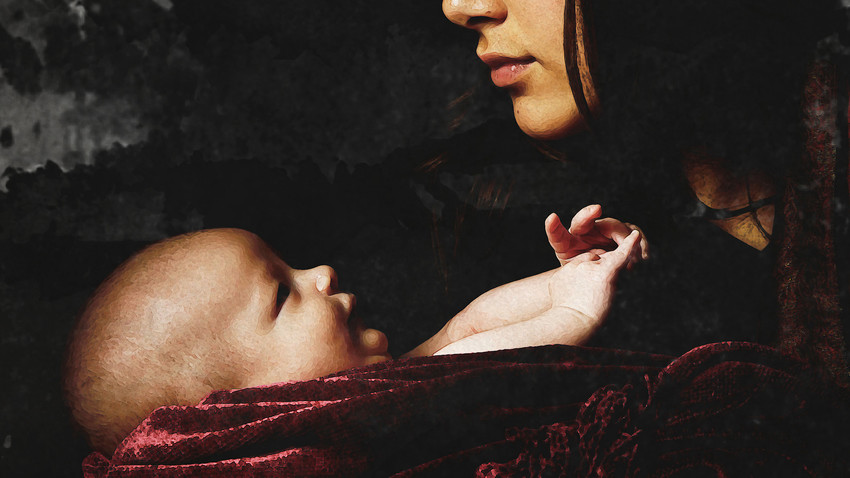
"Just a Baby, Very Wee"
As far as I know, the Lutheran Church in town boasts the only life-size nativity display in our county. At nighttime its scattered spotlights cast a surreal glimmering over the porcelain participants in the birth of the Christ Child. And the recent snowfall with its dollops of white lumped across the scene only adds to its mystique—shepherds, magi, donkey and camel as big as life clustered about the peasant family of man, woman and Infant. "For unto you is born this day in the city of David a Savior which is Christ the Lord" declared the Christmas angel (Luke 2:11).
Joseph Cahill reflects: "At its profoundest, our celebration of Christmas, which continues to maintain such an inexplicable hold on our whole culture, is not 'good news' about material acquisitions (as everything from department stores to television commercials proclaims to us): it is rather, a dramatization of the simple triumphs of common humanity, in which joy at a baby's birth can overcome the most grievous official oppressions, and even the pedestrian aggravations, of ordinary life" (Desire of Everlasting Hills 100).
That's certainly one way to summarize it. But even Cahill would agree that if the Bethlehem story is reduced to "a dramatization of the simple truths of common humanity," who could blame us for dashing past that crude manger, oblivious to the silver miracle embedded in its straw?
Nearly twenty centuries ago came this first carol of all: "By common confession, great is the mystery of godliness:
He who was revealed in the flesh,
Was vindicated in the Spirit,
Seen by angels,
Proclaimed among the nations,
Believed on in the world,
Taken up in glory."
(1 Timothy 3:16 NASB)
Nearly fifteen centuries later Martin Luther composed a children's carol for this season:
Our little Lord, we give thee praise
That thou hast deigned to take our ways.
Born of a maid a man to be,
And all the angels sing to thee.
The eternal Father's Son he lay
Cradled in a crib of hay.
The everlasting God appears
In our frail flesh and blood and tears.
What the globe could not enwrap
Nestled lies in Mary's lap.
Just a baby, very wee,
Yet Lord of all the world is he.
Nearly a century ago Ellen White crafted this un-carol depiction of Christmas: "The work of redemption is called a mystery, and it is indeed the mystery by which everlasting righteousness is brought to all who believe. . . . At an infinite cost, and by a process mysterious to angels as well as to men, Christ assumed humanity. Hiding His divinity, laying aside His glory, He was born a babe in Bethlehem" (7BC 915).
The mystery of incarnation, the miracle of "infleshment" summarized by Paul, celebrated by Luther, articulated by White.
For upon that mystery is balanced the only truth left to save humanity from itself. "For God so loved the world that He gave His one and only Son, that whoever believes in Him shall not perish but have eternal life" (John 3:16).
"Just a baby, very wee, yet Lord of all the world is he."
"O come, let us adore Him."